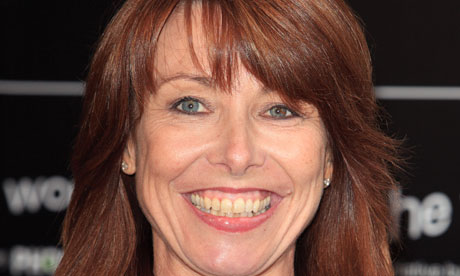
Sky News's Kay Burley probably does not realise it, but her debut novel First Ladies forms part of a once-vibrant tradition within English literature: political women writing about politics.
For the most part writing about politics, as in real life, has been a man's job. Disraeli and Trollope set the mould. But a few members of what Disraeli would undoubtedly have called "the fairer sex" have made a distinctive overlooked contribution to the canon.
Some will make snide fun of the limitations of Burley's prose style. Others shall speculate on whom the "suave PM Julian Jenson" and "sexy TV reporter Isla McGovern" might be based. The most culturally and politically significant aspect of Burley's novel, however, is the sorry place it leaves this once-noble literary tradition.
At the start of the 20th century, politically committed women who wanted to communicate with non-political women wrote novels. Thus suffragette Elizabeth Robins's The Convert (1907) told how one woman was brought to support votes for women; while Vera Brittain's Honourable Estate (1936) showed how women could make an impact in mainstream politics.
Some of these were often turgid tracts. But the Labour MP Ellen Wilkinson wrote two bestsellers, the latter a whodunit, The Division Bell Mystery (1932), which remains a well-regarded contribution to the genre. It also had interesting things to say about the dilemmas of single women in politics – asking how they could they be taken seriously and still have a love life – as well as the declining influence of parliament in an era of increasing social and economic conflict.
By the 1980s and 1990s, however, it was Conservatives who were mostly writing about politics. Conservative men (Douglas Hurd, Michael Dobbs, Tim Renton) wrote thrillers. Conservative women (including Alice Renton, wife of Tim) confined themselves to the domestic front. Such women were rarely those with a frontline role in the party. Like Alice Renton, they were the wives or (in the case of Sarah Keays) the ex-mistresses of leading figures. Sandra Howard even chanced her literary arm.
These novels focused on the frustrations of being a minor figure (ie a Conservative woman) on the margins of political life and the romantic consequences of living in the Westminster village. They were, in other words, novels about politics with little or no deliberate politics in them, although they did give away certain high Tory attitudes (especially the contempt for Conservative grassroots activists – who come across as pushy, drearily middle class and a bit bonkers).
As in other respects, Edwina Currie was the exception – a female Conservative MP writing about what it was like to be in politics. Even so, her A Parliamentary Affair (1994) and A Woman's Place (1996), which together clocked up a Trollope-like 1,450 pages, were glorified bonkbusters. The former gave readers a fictionalised account of her affairs with John Major, which left this reader traumatised: did they really have sex in the bath?
I wouldn't like to pass judgment on Burley's personal politics – although there have been numerous complaints about her alleged bias when interviewing some on the left – but her novel forms another downwards staging post in the Conservative, but in some ways almost apolitical, take on this venerable literary tradition.
A few on the left do still try to keep the flag flying: Melissa Benn's One of Us (2009) is certainly an entertaining novel that uses politics as more than just the backdrop for badly written sex scenes.
Publishers, however, now seem afraid of commissioning novels by women aimed at women who take politics seriously. Instead we are left with novels that turn Westminster into a playground for B-List celebrities and which, to add insult to injury, try to sex-up the Blair-like prime minister.
Winifred Holtby is presumably turning in her grave. But then, if she had watched the recent BBC adaptation of South Riding, which pushed the politics so far into the background it almost disappeared, poor Holtby was probably already revolving at a fair rate of knots.

